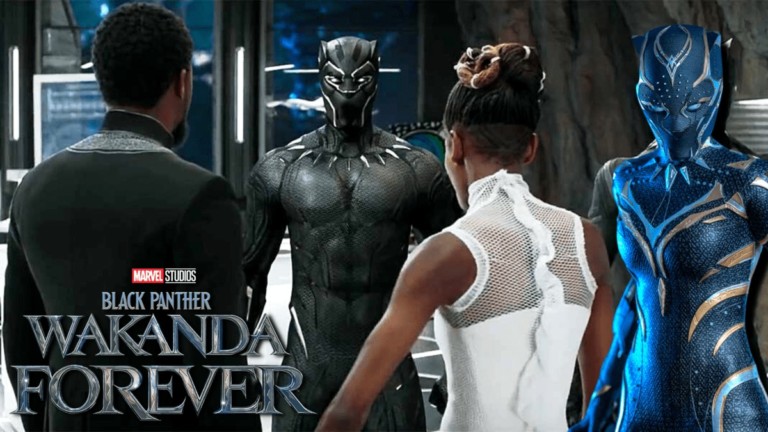Ranking Marvel Phase 4 Secret Societies
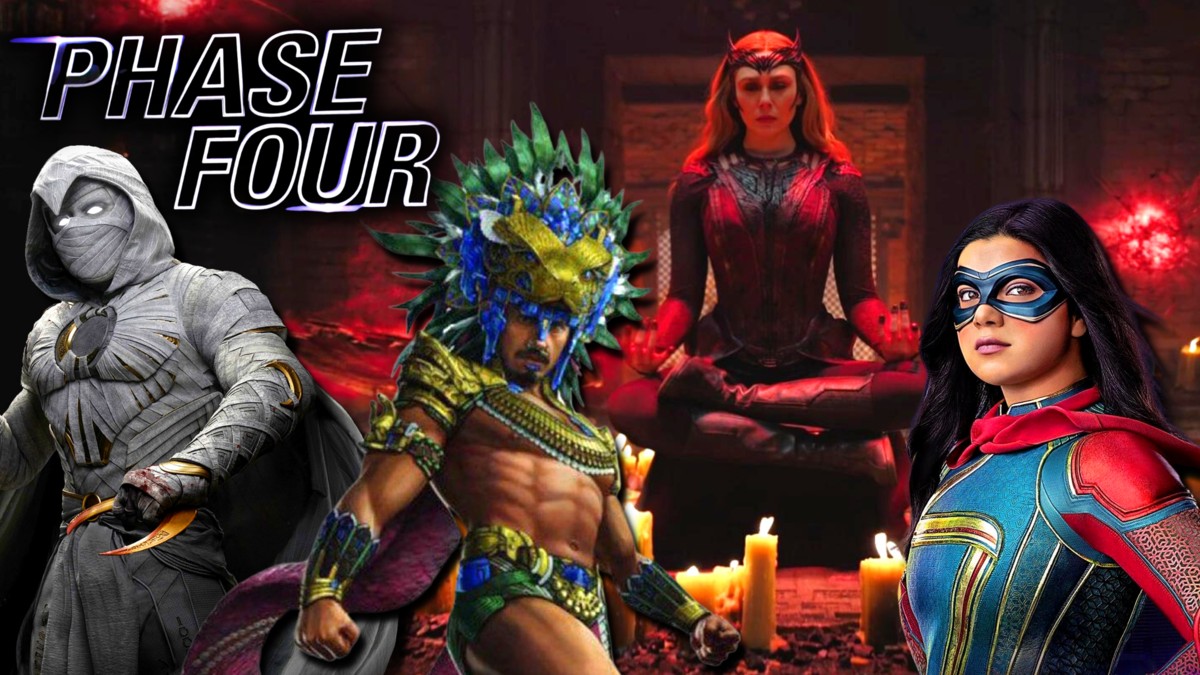
While I’ve had my issues with Marvel’s Phase 4, I’ve noticed one consistent feature throughout – the debut of countless secret societies or individuals that shape the MCU from the shadows. We’ve already seen S.H.I.E.L.D. and HYDRA operating in the shadows in The Infinity Saga but Phase 4 has stepped things up in a major way.
In this phase, Marvel Studios has explored secretive groups in nearly every project. Some are perfectly natural additions to the MCU. Others fit in but rather awkwardly.
For this ranking, I’m focusing on Earth-616 secret societies and individuals and ranking them according to their integration into the wider MCU. The list includes groups that had a background presence in The Infinity Saga but only became major players in Phase 4. Dimensions and alternate universes are off-limits since they’re too large in scope.

Which secret societies need more work and which ones expand the MCU in exciting ways? Let’s find out in my ranking of Marvel’s secret societies in Phase 4!
#15: ClanDestine & Red Daggers
Only appearance: Ms. Marvel
The ClanDestine and Red Daggers are, in my opinion, the worst efforts in worldbuilding we’ve seen in the MCU. I loved Ms. Marvel’s focus on Kamala’s family but the world-ending stakes were unnecessary.
The ClanDestine are flat, underdeveloped villains with no defined purpose. Do they want to go home or do they want to destroy the Earth? The show never makes it clear and they all die off suddenly.
The Noor Dimension is an interesting concept but poorly developed. The Red Daggers claim to have opposed the ClanDestine for centuries, but the group has only been trapped on Earth for 100 years.

If other djinn had come through earlier, what happened to them? Were they simply killed by the Daggers? How are they coming through? Why are they coming to Earth? Who are they, what is their home like, and why don’t we know literally anything about them?
Related Marvel comics reading guide:
#14: S.W.O.R.D.
Only appearance: WandaVision
S.W.O.R.D. is an organization I was very excited about and its debut in WandaVision made perfect sense. However, it’s strange that S.W.O.R.D. has been around for decades yet it’s never been referenced before (outside of a deleted scene).

In the real world, we know it’s because of restrictions between Disney and Fox, but to drop an organization almost identical to S.H.I.E.L.D. into the MCU with no explanation is dumbfounding. If S.W.O.R.D. was founded by Maria Rambeau in the 1990s, how was it not infiltrated by HYDRA? Shouldn’t it have been brought down in Captain America: The Winter Soldier along with S.H.I.E.L.D.?
#13: Damage Control
Debuted in: Spider-Man: Homecoming
Latest appearance: She-Hulk
The Department of Damage Control was introduced in Spider-Man: Homecoming as a Tony Stark-funded government cleanup crew created to mop up the Avengers’ messes. Yet in No Way Home, Ms. Marvel, and She-Hulk, the organization is a military force, appearing at superpowered crime scenes to arrest or outright murder the offender.

The switch-up is confusing and unnecessary, particularly when organizations like S.W.O.R.D. exist in the MCU and should be the ones regulating superheroes. S.W.O.R.D. was already investigating superhero incidents first – there’s no need for Damage Control to do the same thing even more aggressively.
Luckily, it looks like Damage Control will be clarifying its purpose in Phase 5. As reported by our own Alex Perez, it sounds like the DODC will have a significant role to play in the upcoming Armor Wars film!
Related Marvel comics reading guide:
#12: Gods & their avatars
Debuted in: Thor, Moon Knight
Latest appearance: Thor: Love and Thunder
Norse gods entered the MCU in 2011, but others only took the spotlight recently – or rather, they took the background. Considering that these two projects revolved around these powerful beings, gods mattered surprisingly little in both Moon Knight and Thor: Love and Thunder.

We got Khonshu, Ammit, and Tawaret, but what about the other Egyptian gods? Egyptian avatars have been walking the Earth for thousands of years, yet never once participated in any conflict. The gods were portrayed as quite bureaucratic when it came to Ammit, shining a light on their flaws, but we never actually see them. Instead, their avatars spoke for them and were killed off quickly.
To be fair, many of the gods could be imprisoned. When Khonshu was trapped as an ushabti, several more could be seen lining the walls of the Great Pyramid of Giza. Either way, I feel like the MCU missed an opportunity to include more Egyptian gods.
In Thor: Love and Thunder, hundreds of gods from across the universe are seen in Omnipotence City. It’s an incredible scene, but we only get close-ups of a few gods and most of them are simply jokes.
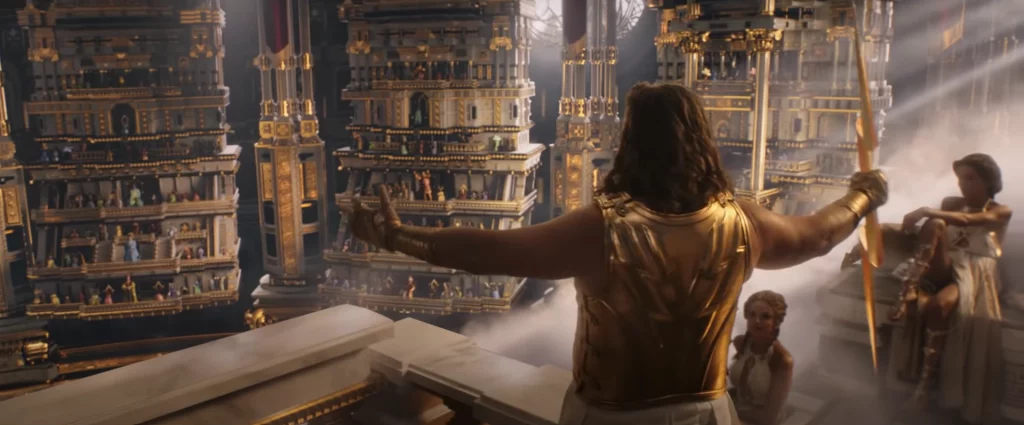
There are some neat references to other MCU properties (like Bast), but because we don’t see most of them, the Council of Gods falls flat. Zeus was a welcome addition to the film, but even his presence raises questions.
In their film, audiences see the Eternals inspire the tales of gods across many cultures. But since actual gods exist, where does a character like Thena fit in? Wouldn’t she be in Omnipotence City since she’s meant to be Athena? If she’s not Athena, where did the actual Greek gods come from?
Either the Greek gods were Eternals or they’re alien gods like Thor, or perhaps they’re a mix of both. Either way, it’s a weird contradiction from a franchise that’s usually so careful with worldbuilding.
Related Marvel comics reading guides:
#11: Monsters & monster hunters
Only appearance: Werewolf By Night
Monsters are a creepy, awesome new addition to the MCU, but I wish we had more background on their hunters. We got a quick recap of the Bloodstone family history in Werewolf By Night but no real development for Elsa Bloodstone (Laura Donnelly) and Jack Russell (Gael García Bernal). And that was intentional – the special presentation was a self-contained, one-shot-style event.
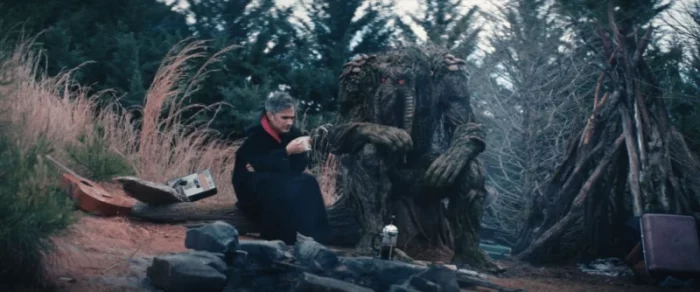
It was kind of cool to just drop into that world and live in its atmosphere for an hour. But as someone who doesn’t love monsters or horror movies, I’m more interested in the mythology behind them – particularly their connection to the Darkhold. I’m not very interested in this corner of the MCU yet but that’ll definitely change when Blade arrives.
Related Marvel comics reading guides:
#10: Witches
Debuted in: WandaVision
Latest appearance: Doctor Strange in the Multiverse of Madness
Witches were introduced in WandaVision, but once again, the utter lack of explanation behind their existence drags them down for me. Sorcerers were introduced with such care in Doctor Strange, but we know exactly three things about witches: they’re born with their abilities, they can absorb the power of other beings, and they can use runes. That’s surprisingly little for a concept this unique and interesting in the MCU.
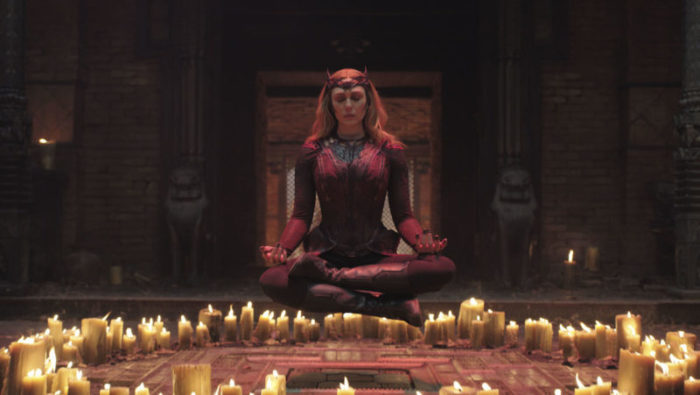
Sorcerers are born from intense training to manipulate interdimensional energy, yet witches seem to occur naturally. Why are their magical abilities innate forces instead of learned skills? Sorcerers use runes too, so why are witch runes such a big deal?
In Multiverse of Madness, both Wong and Strange seem to be scared of witchcraft. As soon as they see runes on Gargantos, the tentacled demon after America Chavez (Xochitl Gomez), both sorcerers know witchcraft is afoot. Wong spits the word “witch” at Wanda as if it’s a curse, while Strange seems to put “witch” on the same level as a terrible evil.
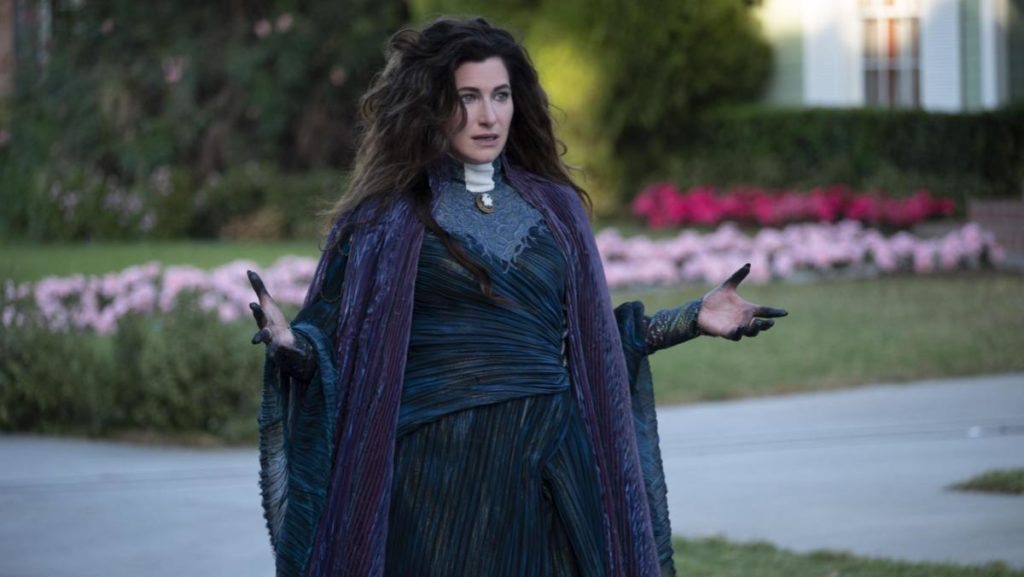
What’s the big deal about witches? Why are they so bad? How are they any different from sorcerers? Why all the drama? I expected to learn more in Multiverse of Madness, but it looks like witchcraft won’t be fleshed out until Agatha: Coven of Chaos.
Related Marvel comics reading guide:
#9: Intelligencia
Only appearance: She-Hulk
Teased in Avengers: Age of Ultron, Intelligencia is a scarily accurate portrayal of misogynist trolls run amok. The group manipulated Jen (Tatiana Maslany), took her blood while asleep, and then carried out an act of revenge porn on top of it – all out of jealousy.

The gala scene in She-Hulk was horrifying because revenge porn is an actual problem people have to deal with in the real world. Intelligencia is one of the scariest additions to the MCU because they represent a threat that actually exists, one that breaks the superhero fantasy in a terrifying way.
#8: The Tracksuit Mafia
Only appearance: Hawkeye
A bit of an odd inclusion, but hey, they fit the criteria! And the Tracksuit Mafia was hilarious.
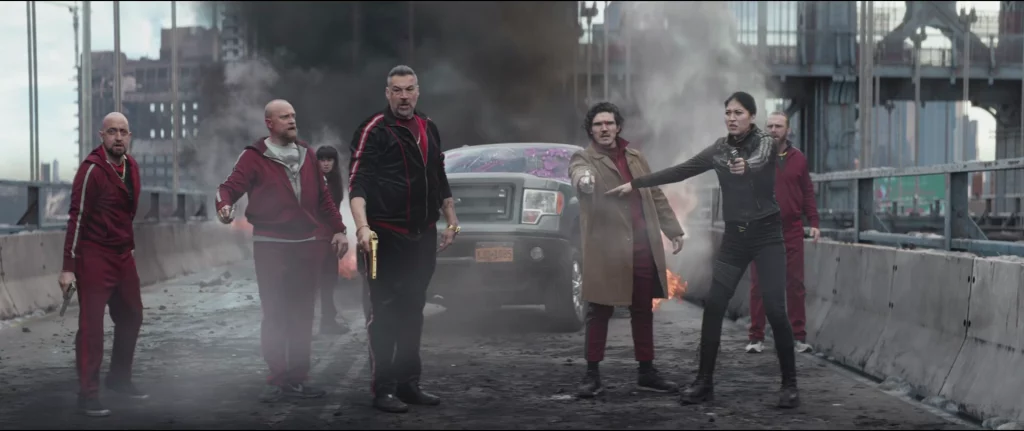
The Tracksuits were a fairly well-oiled machine – it’s not their fault they were up against crazy trick arrows. The group was a persistent threat throughout Hawkeye but still kept things light, and I appreciate that.
#7: Power Broker
Only appearance: The Falcon and the Winter Soldier
The Power Broker is a position that’s existed for a while in the shadows of Madripoor, and she’s eventually revealed to be Sharon Carter (Emily Van Camp). I thought this major twist was a little odd, but it’s an interesting wrench to throw into the Captain America franchise.
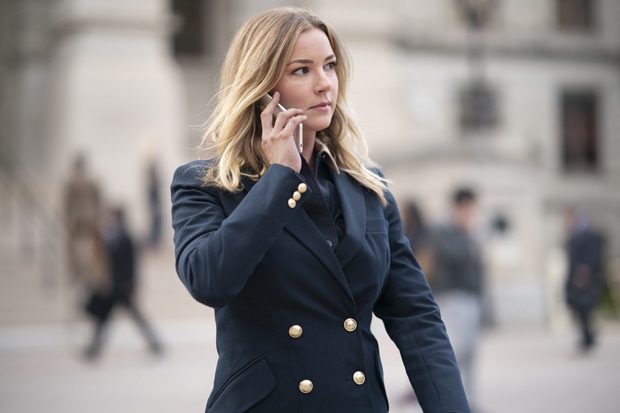
Sharon’s needed a real story for a while, so I’m excited to see what messes she’ll create now that she’s back in the U.S. government’s good graces.
#6: Eternals
Only appearance: The Eternals
Controversial take: I liked the Eternals! I think it’s weird that they didn’t help fight Thanos but their absence isn’t as irritating or plot-hole-esque as other groups here. Their non-involvement makes sense within the context of the larger MCU and I hope to see them become more involved in world affairs if we ever get that sequel.
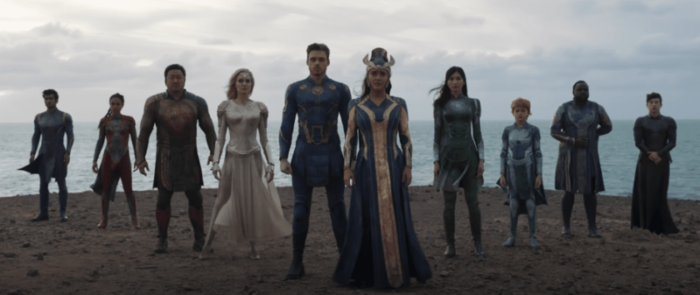
The characters are rich and well-developed once you have time to sit and think about the film a bit more. There’s a depth and humanity to the Eternals that’s missing from other MCU characters – and because there are so many, it’s easy to find a favorite! The Eternals could be valuable additions to the MCU, but because they’re so new and separated at the moment, they couldn’t break into my top five.
#5: The Ten Rings
Debuted in: Iron Man
Latest appearance: Shang-Chi and the Legend of the Ten Rings
The Ten Rings are my favorite weapons in the entire MCU, but what about the organization itself? It was amazing to finally see the real Ten Rings in action after Iron Man’s encounters with splinter groups in the past. The soldiers seem a bit generic but I loved their weaponry, physicality, and (of course) their incredible leader, Wenwu (Tony Leung Chiu-wai).

Their absence during previous Phases was perfectly explained through Wenwu’s story and with Xialing taking over as the leader in Shang-Chi’s post-credits scene, the Ten Rings will only rise to new heights.
#4: The Time Variance Authority
Only appearance: Loki
A police force overseeing all of time itself, the Time Variance Authority has more control over the MCU than any other faction. Their bureaucracy and mission were incredibly well laid-out in Loki.

Despite my larger issues with the series, the TVA was one aspect I consistently loved and respected. Its aesthetics, technology, and functionality were clearly defined in a short amount of time and the series made us gasp in shock when the organization changed for the worse in the season finale. I’m excited to see what our new TVA looks like in Loki season 2!
Related Marvel comics reading guide:
#3: The Watcher(s)
Debuted in: Guardians of the Galaxy Vol. 2
Latest appearance: What If…?
If the TVA oversees all of time, Uatu the Watcher does the same… for seemingly every universe in Marvel’s endless multiverse! The Watcher made a strong impression in What If…?, guiding viewers through strange but familiar stories in a way that showed how much he cared about the people he watches.

It was thrilling to see Uatu (voiced by Jeffrey Wright) emerge from the background in each episode, eventually interacting with characters like Doctor Strange before breaking through the multiverse and forming a team of multiversal guardians. The only way to improve the Watcher’s existence is to bring him into live action!
#2: The Red Room’s Black Widows
Debuted in: Avengers: Age of Ultron
Latest appearance: Hawkeye
We’ve caught a glimpse of the Red Room in Natasha’s memories, but Black Widow was the first time we truly understood it. The Black Widows are similar to the Winter Soldiers, but their existence is much more harrowing thanks to Dreykov’s murderous methods.
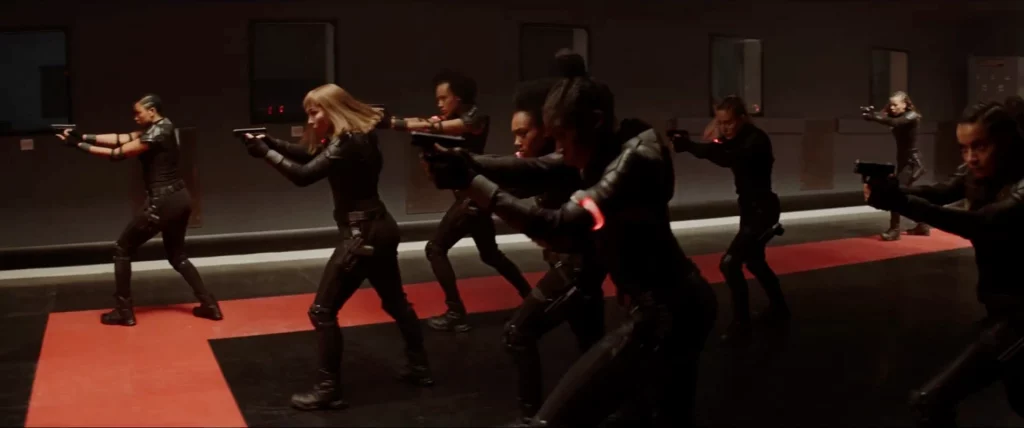
These aren’t assassins who signed up for super soldier serum – they’re ordinary women who were kidnapped from their homes as children and put through intense trauma to become living weapons.
Natasha may have taken down Dreykov and the Red Room for good in 2016, but the Widows haven’t gone anywhere with Yelena and others becoming guns for hire. While they’ve regained their lives and agency, the Widows are still wild cards who could throw a wrench in anyone’s plans.
#1: Talokan
Only appearance: Black Panther: Wakanda Forever
Of course, first place goes to the one and only Talokan. Namor’s civilization is a breathtaking piece of the MCU tapestry. The love and dedication poured into Talokan are matched only by Wakanda itself.
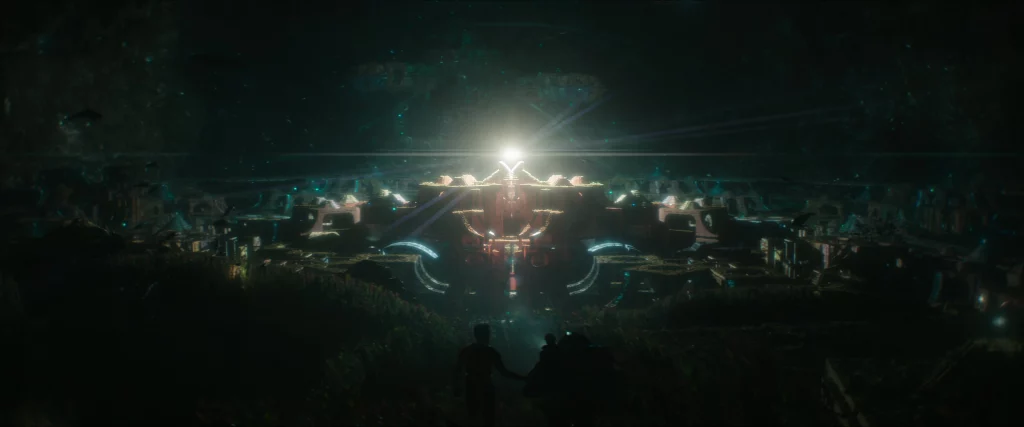
Namor’s underwater world has been a long time coming, but I didn’t expect it to be executed as seamlessly as it was. Talokan’s existence directly mirrors Wakanda’s, adding depth to both civilizations and effortlessly enriching the MCU. This is a sentiment that echoes throughout all of Black Panther: Wakanda Forever. I can’t wait for more Talokan. Where’s my underwater Disney+ series?!
Related Marvel comics reading guide:
Final thoughts on Marvel’s secret societies in Phase 4
While some of these secret societies were better executed than others, all of them only add to the expansive universe we love so much. I hope future projects can expand upon the ones I don’t love yet, but several have already made quite a splash!
What did you think of Marvel’s secret societies in Phase 4? What’s your favorite and why? Comment on The Cosmic Circus Discord or on Twitter @MyCosmicCircus!

